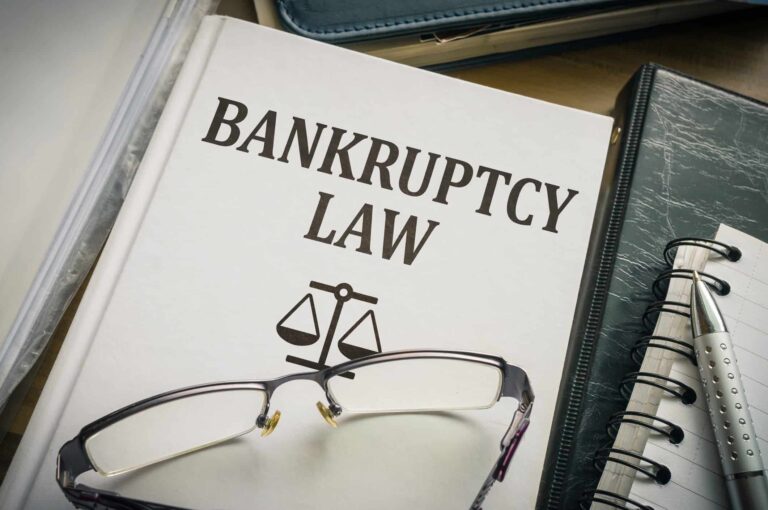Chapter 13 Bankruptcy Checklist and Requirements To File
Filing for Chapter 13 bankruptcy is a legal option for people who can’t pay their debts and face negative actions such as foreclosure on a house or repossession of a vehicle. Your income may be steady, but you may have missed payments causing your mounting debt to become unmanageable. Previously referred to as a “wage earners plan,” a Chapter 13 bankruptcy is a solution to eliminating that debt.
There are different types of bankruptcy called “chapters” in legal terms. When filing, you must file in the state where you live. This article will inform you about Chapter 13 bankruptcy requirements in Nevada. The basis of a Chapter 13 bankruptcy allows an individual to restructure their debt, paying it down over three to five years while keeping their property.
Why file for Chapter 13 bankruptcy?
The reasons you would file for Chapter 13 bankruptcy are:
- You have a steady regular income that exceeds the means test for Chapter 7 bankruptcy
- You own a home and car and are behind on payments, and want to keep the property
- You want to prevent wage garnishment
- You can keep nonexempt property by agreeing to make lower payments over three to five years
Am I eligible for Chapter 13 bankruptcy?
To qualify for Chapter 13, you must meet the Chapter 13 bankruptcy eligibility requirements:
- Have at most $1,395,875 of secured debts. Secured debt means there is collateral to the loan amount owing, such as a car or home.
- Have at most $465,275 of unsecured debts. Unsecured debt is credit cards, personal loans, medical bills, utilities, and department store credit cards.
- You are filing as an individual or sole proprietor of a small business. Larger businesses would have to file a Chapter 11.
- Your income is higher than the means test required for Chapter 7.
Documents needed to file for Chapter 13 bankruptcy
There are at least 23 different forms related to filing a Chapter 13 bankruptcy. It can be complicated to understand which Chapter 13 bankruptcy documents to file. We suggest hiring an experienced bankruptcy attorney in Nevada to help you with the process.
The main form to start with is B 113, the Chapter 13 initial petition. Other forms you may or may not need are:
- B 101 – Voluntary Petition for Individuals Filing for Bankruptcy
- B 101A – Initial Statement About an Eviction Judgment Against You
- B 101B – Statement About Payment of an Eviction Judgment Against You
- B 106Dec – Declaration About an Individual Debtor’s Schedules
- B 106Sum – Summary of Your Assets and Liabilities and Certain Statistical Information
- B 106A/B – Schedule A/B: Property
- B 106C – Schedule C: The Property You Claim as Exempt
- B 106D – Schedule D: Creditors Who Hold Claims Secured by Property
- B 106E/F – Schedule E/F: Creditors Who Have Unsecured Claims
- B 106G – Schedule G: Executory Contracts and Unexpired Leases
- B 106H – Schedule H: Your Codebtors
- B 106I – Schedule I: Your Income
- B 106J – Schedule J: Your Expenses
- B 106J-2 – Schedule J-2: Expenses for Separate Household of Debtor 2
- B 107 – Your Statement of Financial Affairs for Individuals Filing Bankruptcy
- B 113 – Chapter 13 Plan
- B 119 – Bankruptcy Petition Preparer’s Notice, Declaration, and Signature
- B 121 – Your Statement About Your Social Security Numbers
- B 122C-1 – Chapter 13 Statement of Your Current Monthly Income and Calculation of Commitment Period
- B 122C-2 – Chapter 13 Calculation of Your Disposable Income
- B 423 – Certification About a Financial Management Course
- B 2010 – Notice Required by 11 U.S.C. §342(b) for Individuals Filing for Bankruptcy
- B 2030 – Disclosure of Compensation of Attorney for Debtor
The United States Courts government website has the complete list of all chapter bankruptcy forms. The US Courts also provide a list of Chapter 13 forms for individual debtors. Your attorney can guide you on which ones you will need for your case.
How to file for Chapter 13 bankruptcy in Nevada
Deluca & Associates are experienced bankruptcy attorneys in Nevada. We are here to help you through the progression in bankruptcy court. We understand it’s a complex decision to declare bankruptcy, so we offer a helpful guide to all the information needed for Chapter 13 bankruptcy. Expect to take these steps:
- Go through a free credit counseling session to receive a certificate of completion within 180 days before filing an initial petition for Chapter 13.
- Get all your personal bank and bill statements together, including: rent, mortgages, pay stubs, tax returns for the past two years, contracts, leases, and a current credit report from one of the three credit reporting bureaus.
- Hire an attorney to help you file the appropriate petition, schedules, and forms in bankruptcy court who can assist you with filling out the paperwork.
- The initial filing fee is $235 plus a $75 administrative fee. The fees can be paid in installments.
- Once the initial paperwork is filed, the court will assign a trustee who is the liaison between you and the creditors.
- An automatic stay of debt collection will prevent debt collectors from contacting you.
- Similar to a consolidation loan, the repayment plan is submitted within 14 days of filing. You will make one monthly payment to the trustee, who then distributes the payments per the plan schedule.
- The trustee hosts an in-person meeting with the creditors. This meeting is to review and resolve any issues with any repayment plan terms. It takes place 21-50 days after filing.
- After the meeting of creditors, the court will hold a confirmation hearing 20-45 days later to approve the plan’s terms officially.
- Objections can be filed for unsecured creditor debts with another court hearing.
- Payments must start 30 days after filing, according to the plan.
- If you fail to make payments according to the plan, the court may dismiss it and convert it to a Chapter 7 liquidation case under bankruptcy code 11 U.S.C. § 1307.
- You will be granted a discharge of debt effective anywhere from 36 to 60 months (3-5 years) after adhering to the overall Chapter 13 repayment schedule showing all debts were paid in full.
- You won’t be able to use any of your credit cards while in Chapter 13; however, after you are finished with repayment, you can apply for secured credit cards.
Is filing for Chapter 13 bankruptcy the best option for you? Find out with the help of a bankruptcy attorney

As you can see from the several key points listed above, it’s a complicated, lengthy process. At DeLuca & Associates law firm, we are committed to making the bankruptcy process easier for you to handle. We take the time to evaluate your situation, reviewing all the necessary details to help you determine if a Chapter 13 bankruptcy is the best option for you. Our initial consultation is free of charge; simply fill out the form below to get started as soon as possible.
CTA: Contact a $0 down bankruptcy attorney today. You have nothing to worry about with DeLuca & Associates at your side.






